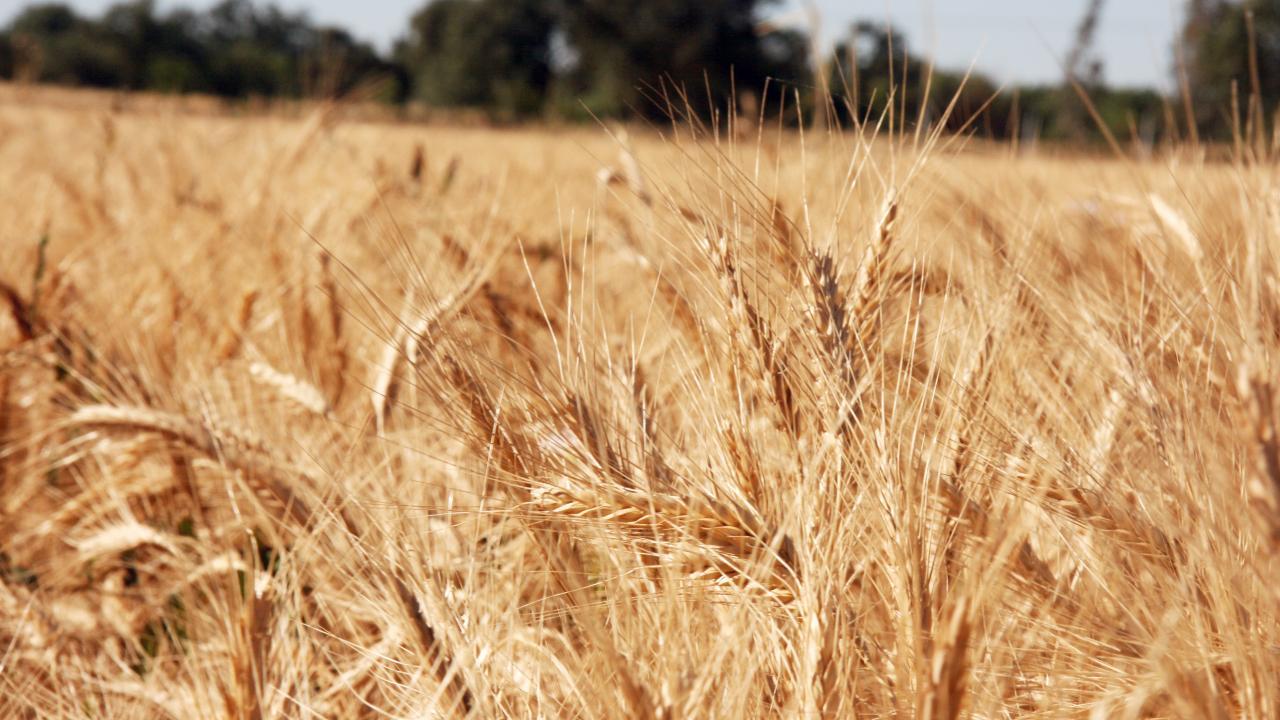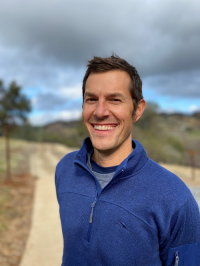
Cameron Pittelkow: New UC Davis Plant Sciences Professor in Agronomy and Agroecosystems
This article originally appeared on the UC Davis Department of Plant Sciences website.
By Ann Filmer

The Department of Plant Sciences welcomes Cameron Pittelkow to UC Davis as an assistant professor. His expertise covers the areas of Agronomy and Agroecosystems, with a focus on sustainable crop production, management practices for high yields with low environmental footprints, and international agriculture.
An agronomist by training, his initial goal is to focus on field crops in California — rice, wheat, maize, and alfalfa — to understand opportunities for improving productivity and resource use efficiencies at the cropping systems level.
“We know we need to increase yields and profitability,” said Pittelkow, “but the challenge is to do that with fewer resources, such as water and nutrient inputs, while limiting environmental impacts. The regulatory climate in California is a major challenge facing growers. There is an exciting opportunity to work with the agricultural community to find a balance between profitability and sustainability.”
Rather than focusing solely on individual crops, Pittelkow and his research team will assess cropping systems, including different rotations and management practices, depending on the context. At the same time, they are working to address broader social dynamics in agriculture, recognizing that socio-economic factors have a large impact on decision-making and the potential for sustainable intensification.
California and International Work
In addition to working with California growers, Pittelkow also works internationally through a variety of collaborations. In developing countries, governments and international institutions are interested in increasing yields to promote economic growth and achieve food security — but unlike previous decades, this can no longer come at the cost of the environment. The challenge is to develop food systems that get it right the first time.
“The future of agronomy is linking crop production goals with the environmental outcomes,” Pittelkow said. “We have to be realistic and acknowledge that we’re going to have tradeoffs in agriculture — that is inevitable — so we need new approaches to identify the advantages and disadvantages of different practices. Only then can we make tough decisions as a society on what to prioritize and where we need to compromise.
Teaching
“Agriculture and the Environment” is an upper-level class that Pittelkow is teaching this quarter. There are more than 60 students who are bright, engaged, and ask really tough questions. He has them evaluate major problems facing agriculture and then propose promising solutions based on analyzing scientific papers and developing a plan for stakeholder engagement. Given the complexity of these challenges, class discussions often lead to the politics and ethics of food systems.
“I’m trying to teach the students that there is no simple answer, and no right or wrong,” said Pittelkow. “If we are going to make progress on sustainability, we need new ideas and energy in agriculture like never before. My goal is to teach students how to approach problems with a critical mindset so they can weigh all the different possibilities and make informed decisions.”
In addition to his current class, next year he will teach an International Agricultural Development (IAD) graduate class in cropping systems analysis. He feels very fortunate that his research blends so well with his teaching program.
Academic Background
Raised in Minnesota, Pittelkow obtained a B.A. degree in Environmental Biology from Colgate University, then migrated west to UC Davis, where he received an M.S. in International Agricultural Development, and a Ph.D. in Agronomy with an Agroecology emphasis. As a graduate student, he worked with now-Emeritus Professor Chris van Kessel and Cooperative Extension Specialist Bruce Linquist.
He then spent five years as an assistant professor of Agronomy at the University of Illinois, and he values the new ideas he learned working with great researchers in the Corn Belt.
Pittelkow also worked in Uruguay as a Fulbright Scholar, and previously lived in India for nearly two years, working on education and environmental sustainability projects.
Why Return to UC Davis?
“California is at an exciting time,” said Pittelkow. “There are a lot of challenges facing agronomic crops. They’re lower in value, and there’s competition for land and resources, all of which make it a high-stakes environment. UC Davis is a great place to try to help solve these tough problems.”
Pittelkow plans to collaborate closely with Cooperative Extension specialists at UC Davis and throughout California to develop a useful applied research-to-extension continuum.
With UC Davis as a global leader in agriculture, and a long history of international engagement, Pittelkow also notes that the ability to teach and conduct research on international issues is very valuable.
“As an institution, everyone at UC Davis is really ambitious, open-minded, and some of the best in the world in their disciplines. And they’re also nice, mellow, and have very little ego,” Pittelkow said admiringly. “It’s an incredible environment for collaboration. The future opportunities are huge.”
When not at work, Pittelkow spends as much time as possible with his wife, Sarah Stewart, and their two energetic young sons. Stewart will soon start a position at the Innovation Institute for Food and Health at UC Davis.
“Biking to campus is the best part of my very busy day,” jokes Pittelkow. “It’s the one short time I’m not responsible for anything and can just enjoy the ride.”
